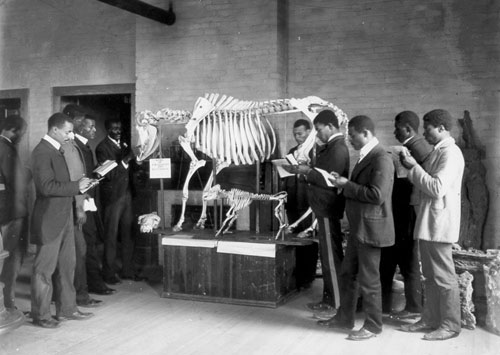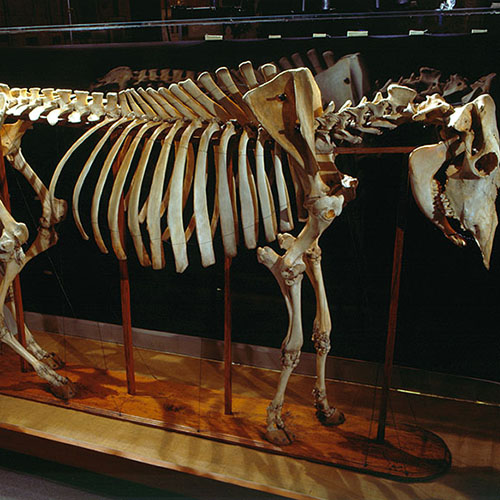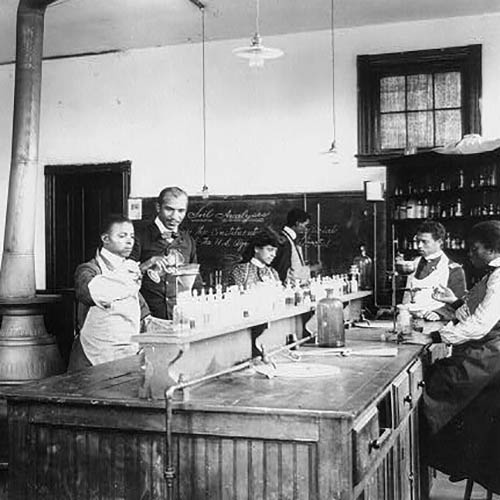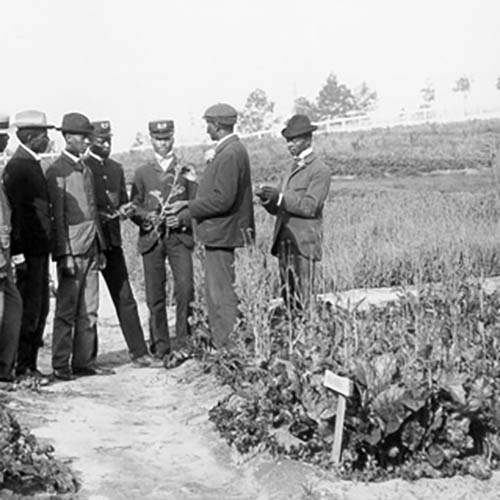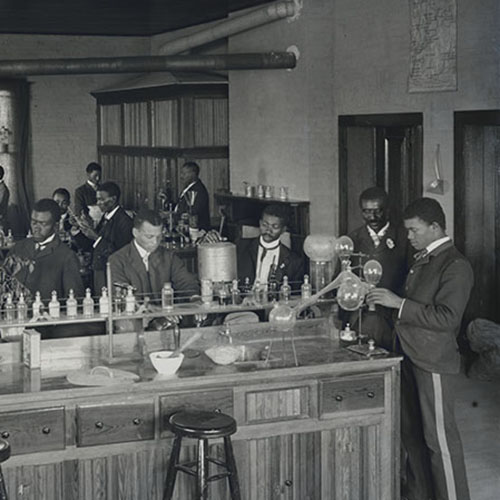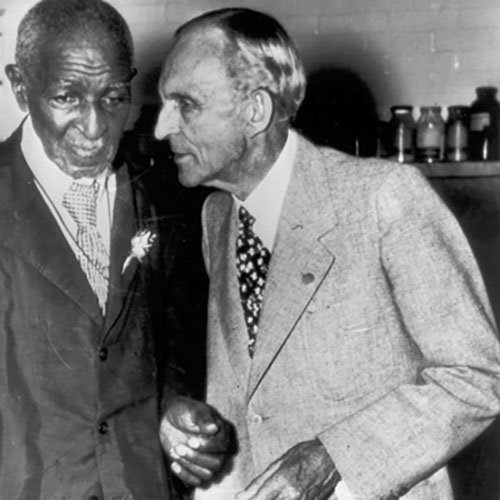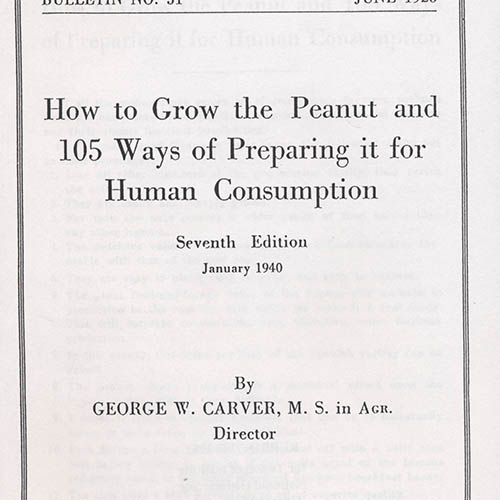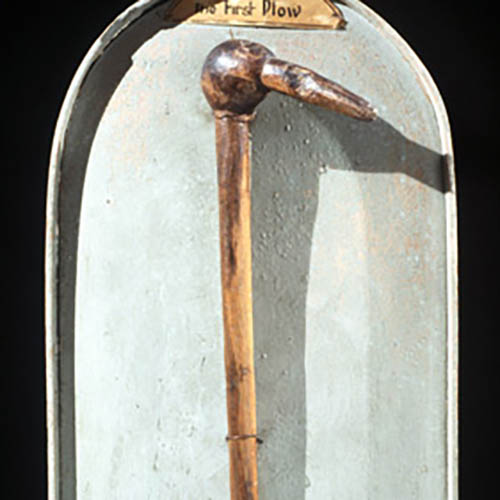A Great Teacher
Looking to attract the best and brightest African-American professionals to Tuskegee, Booker T. Washington hired the young teaching assistant, George W. Carver, in 1896. The two men shared the belief that a practical education would make African-Americans self-sufficient. In a letter to Washington, Carver said, "it has always been the one ideal of my life to be of the greatest good to the greatest number of my people possible and to this end I have been preparing myself for these many years, feeling as I do that this line of education is the key." Carver believed that Tuskegee Institute was the place that could "unlock the golden dawn of freedom to our people."
A gifted teacher, Carver was assigned various responsibilities at Tuskegee over a long career. Washington realized that Carver was "a great teacher, a great lecturer, a great inspirer of young men and old men," despite his frustrations at Carver's management and administrative shortcomings.
